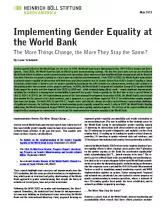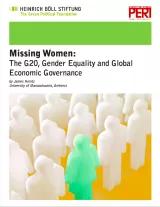Intro
Gender democracy is an overarching goal of our work and a cross-cutting theme for all activities of the Heinrich Böll Foundation. This concept addresses the deep-rooted structural (including economic, political and legal) as well as societal and cultural causes of the persisting inequality of men and women. We integrate considerations of gender equality into all of our programs, building gender awareness in international political processes, institutions and networks and offering perspectives for gender-responsive policy and financing approaches.










